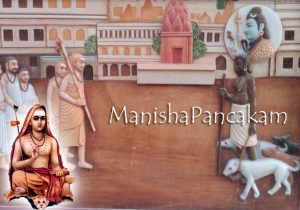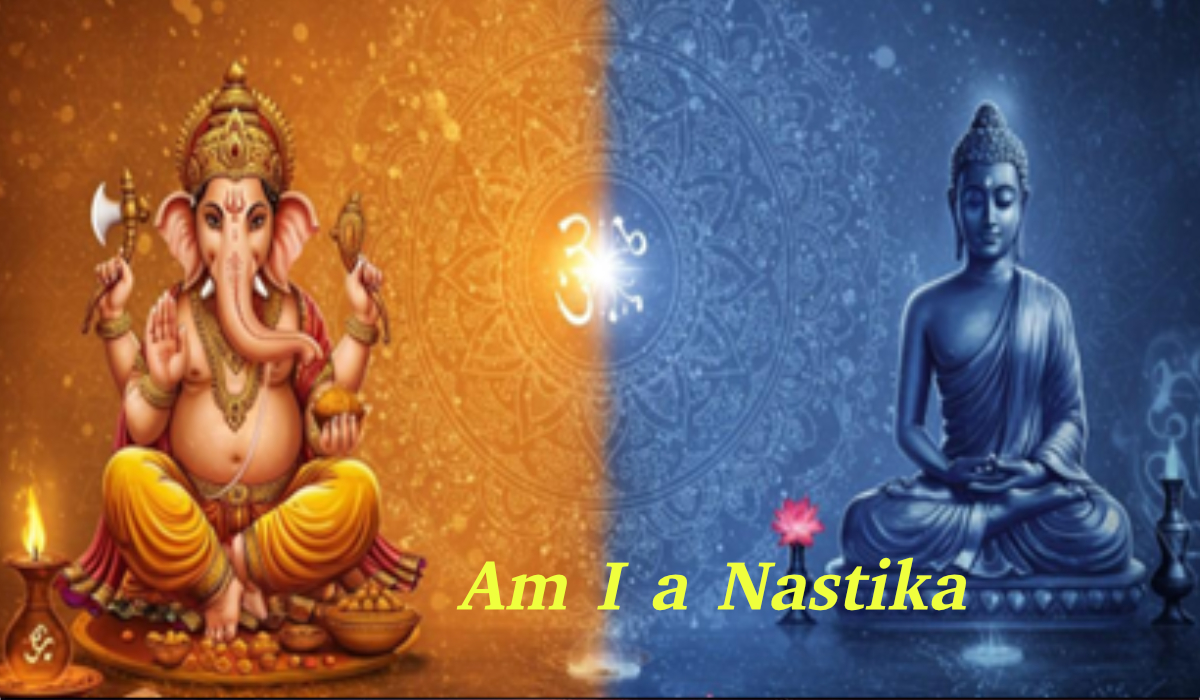01 Manisha Panchakam Context
City of Kasi – Stranger’s Question
यतिवर दूरीकर्तुम् वांछसि किम् ब्रूहि गच्छ गच्छेति ||
yativara dūrīkartum vāṁchasi kim brūhi gaccha gaccheti ||
Meaning
O, The best among the Seers! Whom are you addressing by your scornful command as ‘Go away, go away’? Is it to my physical body which is made-up of food as yours or the immutable intelligence (the Atman) embodied within, which is also within you and pervasive?
First Line:
annamayaad = made-up of food (my body); annamayam = manifested variations of food (as your body); atha vaa = else, perhaps; chaitanyam = the inner sentient energy in me (atma); ya meva = it is also; chaitanyaat = pervasive inner sentient energy (as in you);
Second Line:
yati vara = O! Best among the Seers!; dooree kartum = keep at a distance; vaanchasi = you are keenly; kim = whom; broohi = (in anger) you shout to; gachcha gachcha iti = go away, go away, thus;
Interpretation
In this verse, the Stranger raises the point about the ‘prathipaasika’ or perceived differences leading to scornful discrimination and social injustice. Yet his questions reflect his much deeper understanding of Advaita. Clearly he is a man of immense wisdom, as he describes the nature of human embodiment and the concept of Atman.
The Vedanta analyzes each life as an embodiment of Atman. The highest form of life on the earth is the life of human. The human body, which enshrines the Atman, is viewed in two different perspectives in the Vedanta.
One view is that the human embodiment consists of five sheaths or layer, namely the sheaths of food (annamaya), vital air (praanamaya), mind (manomaya), intellect (vigyanamaya) and bliss (aanandamaya). The Stranger, being a Seer himself, refers to the first sheath in the first line.
The Vedanta also views the human embodiment consisting of three different types of bodies, namely the gross-body (sthula sarira), subtle-body( sukshma sarira) and the causal-body (kaarana sarira).
The gross-body is the physical and tangible body. This is made-up of sheath of food only. ‘deham annamaya kosam’ says the Upanisad. The word ‘deham’ means the gross-body, ‘annam’ means food, ‘mayam’ means the extended variations or manifestation and ‘kosam’ means the sheath.
The gross body is termed as annamaya kosa or food sheath. It is so called because the body is born of food, nourished by food, decayed by food and turns into food. The food here refers to the cause-objects of all gross bodies. These are, when analyzed using ‘kaariya dhristi’ proves to be made-up of the same five-common-elements, namely space (aakash), air (vaayu), fire (agni), water (apa) and earth (prithvi).
The gross body is what is referenced in the Stranger’s question.
The gross body is insentient. It has no intelligence of its own. So, there is no use in asking the gross body to move away as it is lifeless. Also, all gross bodies, although appear variably, are in principle, the same and insentient.
Perhaps, knowing that the body is insentient, was the command to get away, addressed to the sentient energy within? Even so, this must be wrong because the Atman that shines life in this body is no different to the Paramaatman that enliven in all bodies, pervasive and omnipresent. So how can it go away?
Ordinary people may, due to ‘prathipaasika’ differences, inflict irrational discrimination on others. How can a saintly person whose purpose is Self-realization discriminate others, knowing that all things are due to the undifferentiated Brahmam? Where is the integrative wisdom!
That is why, the Stranger, who himself proves to be a great Seer, did not chose to ignore the scornful command and simply go away. As it comes from the entourage of saintly people, such folly must be questioned.
By addressing Adi Sankara as ‘O, the best among the Learned’, the Stranger emphatically brings the anomaly of the action.
Then the Stranger thinks that perhaps the disciple who delivered the scornful order, knows these facts, but is he deluded about the Atman? Is the delusion because of his views that the Atman embodied in a lowly and dirty body also becomes tainted and unclean? Is the Atman guilty of association?
Thinking thus, the Stranger asks the next question.





